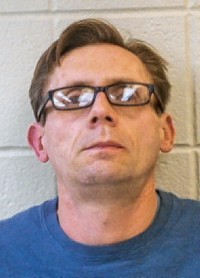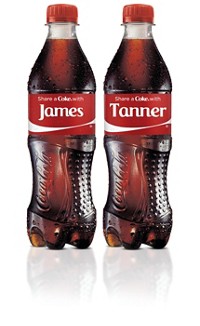Advertisement
Grab your lab coat. Let's get started
Welcome!
Welcome!
Create an account below to get 6 C&EN articles per month, receive newsletters and more - all free.
It seems this is your first time logging in online. Please enter the following information to continue.
As an ACS member you automatically get access to this site. All we need is few more details to create your reading experience.
Not you? Sign in with a different account.
Not you? Sign in with a different account.
ERROR 1
ERROR 1
ERROR 2
ERROR 2
ERROR 2
ERROR 2
ERROR 2
Password and Confirm password must match.
If you have an ACS member number, please enter it here so we can link this account to your membership. (optional)
ERROR 2
ACS values your privacy. By submitting your information, you are gaining access to C&EN and subscribing to our weekly newsletter. We use the information you provide to make your reading experience better, and we will never sell your data to third party members.
Biological Chemistry
Sweet Chemistry
Trial pitting Splenda against Equal brings science to the courtroom
by Lisa M. Jarvis
July 9, 2007
| A version of this story appeared in
Volume 85, Issue 28
SHAKESPEARE SAID, "A rose by any other name would smell as sweet." But must you still think of it as a rose?
To Merisant, the Chicago-based maker of aspartame-based Equal, the answer, when it comes to artificial sweeteners, would be an emphatic "no." The company has been embroiled in a lengthy legal battle with McNeil Nutritionals, the maker of Splenda, over advertisements proclaiming that "Splenda is made from sugar, so it tastes like sugar." But sweet as it is, Splenda doesn't actually contain table sugar—sucrose—and Merisant accused McNeil of misleading consumers.
Media coverage of the trial, including news items that appeared in C&EN (April 16, page12, and May 21, page 17), boiled the dispute down to the trouble with three chlorine atoms, which is the difference between the sucralose in Splenda and sucrose molecules.
In reality, the scientific arguments presented to the jury were far more complex. A transcript of the testimony is full of concepts like binding affinity and stereochemistry. Fluorescence spectroscopy and synchrotron studies were bandied about. Scientists gave a little lesson on the intricacies of the sweet taste receptor. And in the end, jurors were asked to determine whether the sweet taste of Splenda is entirely due to its structural similarity to sucrose.
And yet, as the lead council for McNeil promised the jurors, "You do not have to be a chemistry whiz to understand this."
The case essentially pitted the word of a chemist against that of a biologist. Eric Walters, a medicinal chemist in the department of biochemistry and molecular biology at Rosalind Franklin University of Medicine & Science with 25 years of taste research experience, served as the expert witness for Merisant. McNeil offered up the opinions of Steven Munger, associate professor at the University of Maryland School of Medicine, in Baltimore, where he has been a faculty member since 2000.
McNeil's defense was that sucralose tastes like sugar because it is a derivative of sugar. More specifically, the legal team claimed that the "chemical structure and physical properties" of sucralose are so similar to those of sucrose that the two molecules interact with the sweet taste receptor in the same way.
Munger explained that sucralose attaches to two subunits of the sweet receptor, T1R2 and T1R3, in the same way that sugar does. Furthermore, he said, when bound to the receptor, sucralose brings about the same kind of cellular changes as sucrose. The only difference is that sucralose binds far more tightly than sucrose, making it 600 times sweeter, he said.
Munger backed up his argument with data from experiments he had performed. One study employed fluorescence spectroscopy to measure the binding affinity of sucrose and sucralose for T1R2 and T1R3, while another used a synchrotron to measure the conformational change the receptor undergoes when sucrose or sucralose binds to it.
Meanwhile, Merisant's legal team questioned Walters on the chemistry. He had three key talking points: First, sucralose's sugarlike taste is not due to any origins from sugar; second, sucralose has off-tastes that sucrose doesn't have, suggesting it binds to taste receptors beyond the sweet taste receptor; and finally, contrary to Munger's findings, sucralose does not bind to the sweet taste receptor in the same place or in the same way as sucrose does.
Walters illustrated his points with data from human taste tests; with an analysis of the three-dimensional structures of sucrose and sucralose; and with a comparison of the stereochemistry of galactosucrose, which is not sweet, with that of sucralose.
BUT PERHAPS the most convincing evidence was the simplest to understand. Merisant's lawyers zeroed in on the manufacturing process for sucralose, identifying every chemical used and intermediate formed and asking Walters, "Is it sweet?" Their point was clear: Just because you start out with sugar doesn't mean you end up with sugar. (Lest there be any doubts, let the record show that dimethylformamide, cyclohexane, and phosgene are not sweet.)
Reading the testimony makes for quite a whirlwind chemistry course. Though the experts, particularly Walters, do a good job of breaking down the scientific arguments into laymen's terms, it is still quite a mouthful. The testimony raises the question of just how much of the science the jury actually understood and how much their verdict relied on their perception of a scientist's expertise.
"Juries are smarter than people give them credit for," says Gregg F. LoCascio, a partner with Kirkland & Ellis and lead trial counsel for Merisant. "Their life experience may not be in this field, but they often don't get lost in some of the details that an expert might try to distract them with."
Still, juries weigh things like degrees, titles, and awards perhaps more than the average person does, LoCascio says. And appearances also matter. Munger is younger than Walters, and it would be easy to imagine that a juror would have some notion about their relative levels of experience. "There is a bit of a central casting part involved," LoCascio concedes. But he adds that it always comes down to expertise in the field.
In the end, the chemist for Merisant appears to have won over the jurors. Just moments before the jury was to announce its verdict, the companies reached a confidential settlement, albeit one that is now in dispute. But jurors questioned by reporters after the trial indicated they had sided with Merisant.
"At base, we had a chemist and they didn't, and I think that would make a difference to a jury," LoCascio says.
Views expressed on this page are those of the author and not necessarily those of ACS.






Join the conversation
Contact the reporter
Submit a Letter to the Editor for publication
Engage with us on Twitter